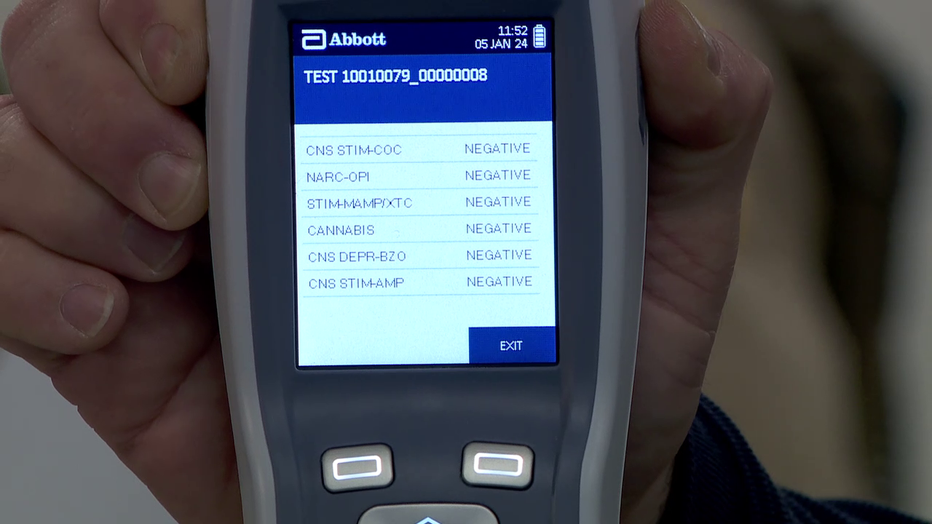Cannabis law: Minnesota tests new drug detection devices for driving impairment
ST. PAUL, Minn. (FOX 9) - New drug detection technology is coming to officers patrolling Minnesota roads.
The state is launching a pilot project to see how effective roadside saliva testing can be, especially in light of marijuana legalization, but there is some skepticism about the new technology.
State patrol officers say drugged driving drastically increased even in the years before legalization, so they’re hoping one of two new tests will help them enforce the laws and save lives.
Determining a driver’s sobriety may now be as simple as shoving a swab in the back of the mouth.
Minnesota drug recognition experts are getting about 75 of the SoToxa saliva testing devices.
They’re part of a $1.4 million pilot project rolled into the bill legalizing recreational marijuana, but they also test for six other drugs.
"We're seeing accuracy above 90%," said Rob Duckworth of Intoximeters, the company distributing Abbott Labs-made SoToxa oral child tests.
But in a 2021 Michigan pilot project, 5% of the cannabis positive results were false when compared to blood tests and the numbers were worse for other drugs.
Academic studies show the devices may detect recent use, but not impairment.
"So people may have used cannabis recently or a while ago, but they may not be significantly impaired," said Dr. Tom Marcotte, a psychiatry professor at the University of California, San Diego, and Co-Director of the Center for Medicinal Cannabis Research.
Officers hope the technology improves over time, like alcohol breathalyzers did.
They were trained on the SoToxa Friday.

A drug test reading showing negative signs of impairment.
"This is a tool that will save lives," said Minnesota Office of Traffic Safety director Mike Hanson. "It's that simple."
They’ll also learn how to use a Dräger device in about a month.
For now, every test is simply about data collection.
Taking them is voluntary and the results will be hidden from the officers.
"It's not admissible in court," Hanson said. "It can't be used to take your driver's license away, and it can't be used to for me to make that decision, whether I'm going to make an arrest or not."
The highly trained drug recognition experts are a critical part of the equation because they have to determine impairment.
The tests are supposed to be an objective measurement to back up their subjective determination.

